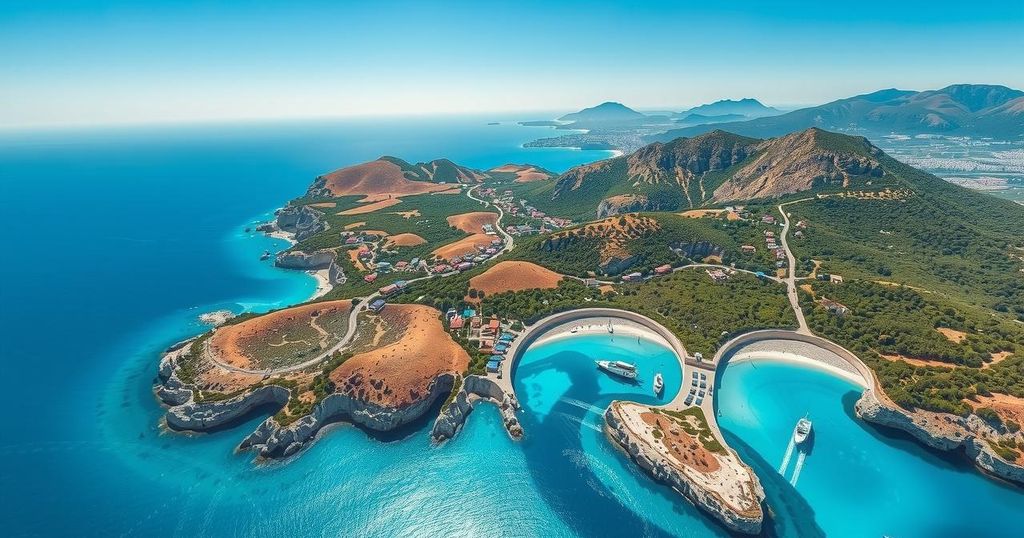Global news
ASIA, CANADA, CIVIL NUCLEAR AGREEMENT, CROATIA, CYPRIOTS, CYPRUS, DIPLOMACY, EU, EUROPE, EUROPE/ASIA, EUROPEAN UNION, GEOPOLITICS, GREECE, GREEK JUNTA, IAEA, INDIA, INTERNATIONAL ATOMIC ENERGY AGENCY, INTERNATIONAL RELATIONS, KASHMIR, LIMASSOL, ME, MEDITERRANEAN SEA, MINISTRY OF EXTERNAL AFFAIRS, MOD, MODI, NA, NARENDRA MODI, NEW DELHI, NICOSIA, NIKOS CHRISTODOULIDES, NORTH AMERICA, NSG, NUCLEAR SUPPLIER GROUP, PAKISTAN, REGIONAL SECURITY, REPUBLIC, SUPPLIER GROUP, SYRIA, TURKEY, TURKISH REPUBLIC OF NORTHERN CYPRUS, UN SECURITY COUNCIL, UNITED NATIONS, UNITED NATIONS PEACEKEEPING FORCE, UNITED STATES, US
Jamal Walker
0 Comments
PM Modi in Cyprus: Why the Nation Matters for India and Its Turkey Angle
Prime Minister Modi’s first visit to Cyprus in over 20 years emphasizes strategic ties amid Turkey’s growing influence with Pakistan. The trip is pivotal for India in terms of economic coalitions and international support against terrorism. Cyprus is crucial geographically for the IMEC and will soon hold the EU Presidency.
Prime Minister Narendra Modi arrived in Cyprus on June 15, kicking off a three-nation tour that includes a stop in Canada for the G7 summit, with Croatia also on the agenda. This marks the first visit by an Indian Prime Minister to Cyprus in over two decades. Experts see this trip as a strategic maneuver in response to Turkey’s growing relationship with Pakistan.
During his time in Cyprus, PM Modi plans to meet with President Nikos Christodoulides in Nicosia and address business leaders in Limassol. The importance of Cyprus to India and the underlying Turkey factor is significant, as tensions between Turkey and Cyprus date back decades.
Cyprus, situated in the eastern Mediterranean near Turkey and Syria, is a member of the European Union despite its geographical location in Asia. Following its independence from British rule in 1960, violent clashes erupted among its two major communities—Greek Cypriots and Turkish Cypriots. A peacekeeping force from the United Nations had to step in after violence escalated just three years after Cyprus gained independence. In 1974, tensions escalated dramatically when a coup, aimed at uniting Cyprus with Greece, prompted a Turkish invasion. This led to the division of the island, with Turkey continuing to recognize the Turkish Republic of Northern Cyprus, a self-declared entity in the island’s northeastern part.
India’s ties with both Cyprus and Turkey present a complex picture. According to a release from the Ministry of External Affairs, Cyprus is an “dependable friend” that has supported India’s bid for a permanent seat on an expanded UN Security Council and has backed the India-US Civil Nuclear Agreement. These alliances are critical for India as it seeks to meet its energy needs and further its economic goals. Conversely, Turkey has been perceived as supportive of Pakistan, particularly with recent incidents involving weapons. Allegations emerged that drones used in a recent confrontation in Kashmir were of Turkish origin, which raised significant concerns in New Delhi.
Before this trip, PM Modi made a statement emphasizing the purpose of this three-nation tour as thanking partners for their support in combating cross-border terrorism while advocating for global cooperation against all forms of terrorism.
Looking beyond the Turkey-Cyprus rivalry, there are additional reasons for India to value its relationship with Cyprus. Its strategic geographical location is pivotal for India’s involvement in the India-Middle East-Europe Economic Corridor (IMEC), aimed at enhancing trade and connectivity within the region. This corridor is expected to facilitate considerable benefits for India, particularly as Cyprus lies in the Mediterranean.
Notably, Cyprus is set to assume the Presidency of the EU Council during the first half of 2026, which positions it as a key player as India seeks to strengthen its trade and security ties with Europe. As such, Nicosia could become an invaluable ally as India navigates its diplomatic landscape.
In conclusion, PM Modi’s visit to Cyprus represents a significant diplomatic maneuver for India, positioned to enhance ties with a nation that strongly supports its objectives on the global stage. Beyond the immediate diplomatic context, India’s relationship with Cyprus is crucial for economic corridors and future trade collaborations. Meanwhile, understanding the complexities of Turkey’s influence further underscores the strategic nature of this visit.
Original Source: indianexpress.com




Post Comment